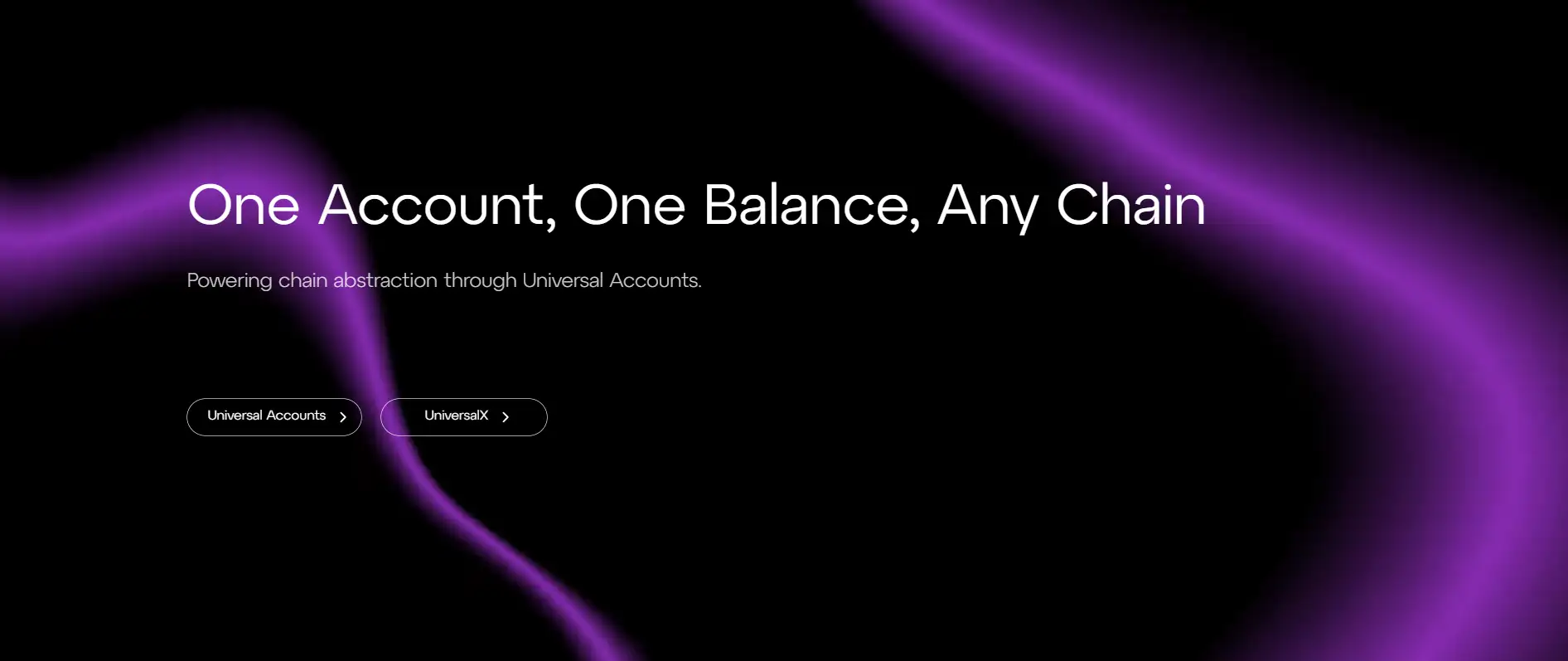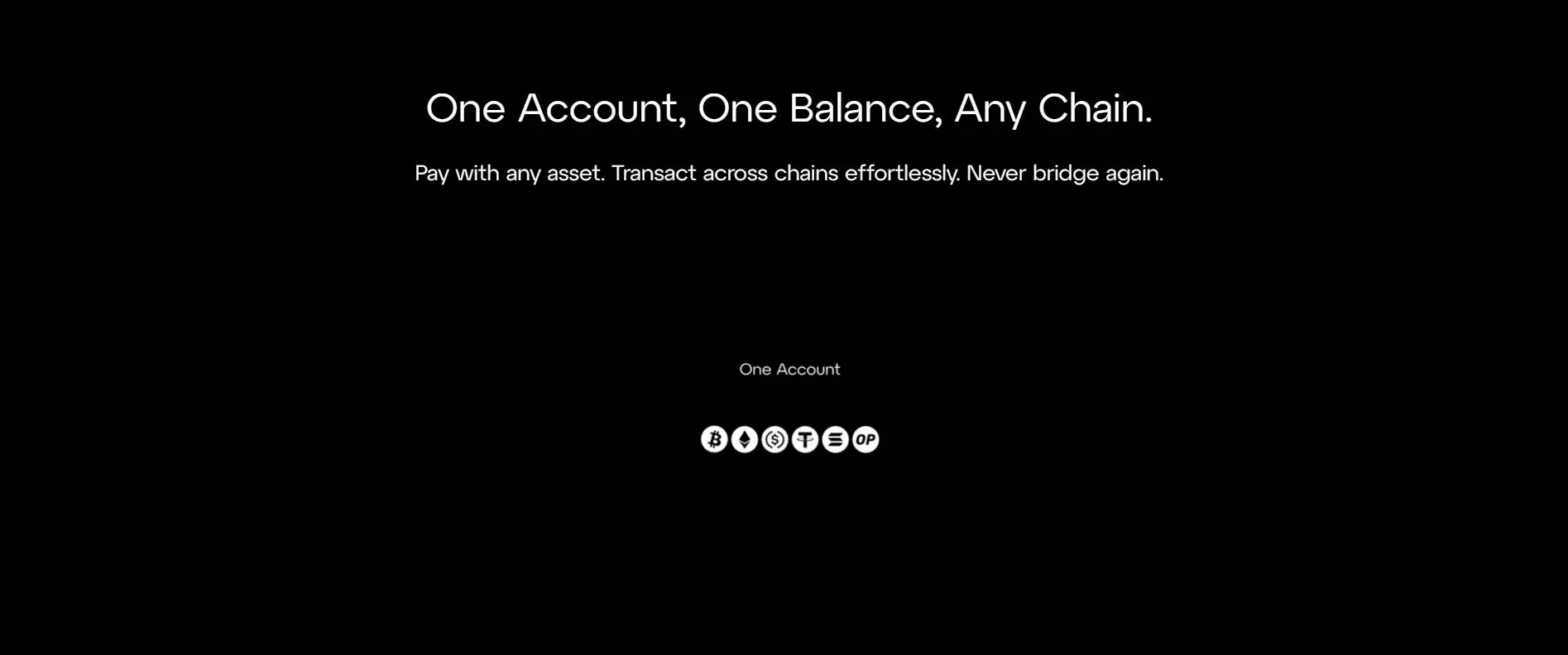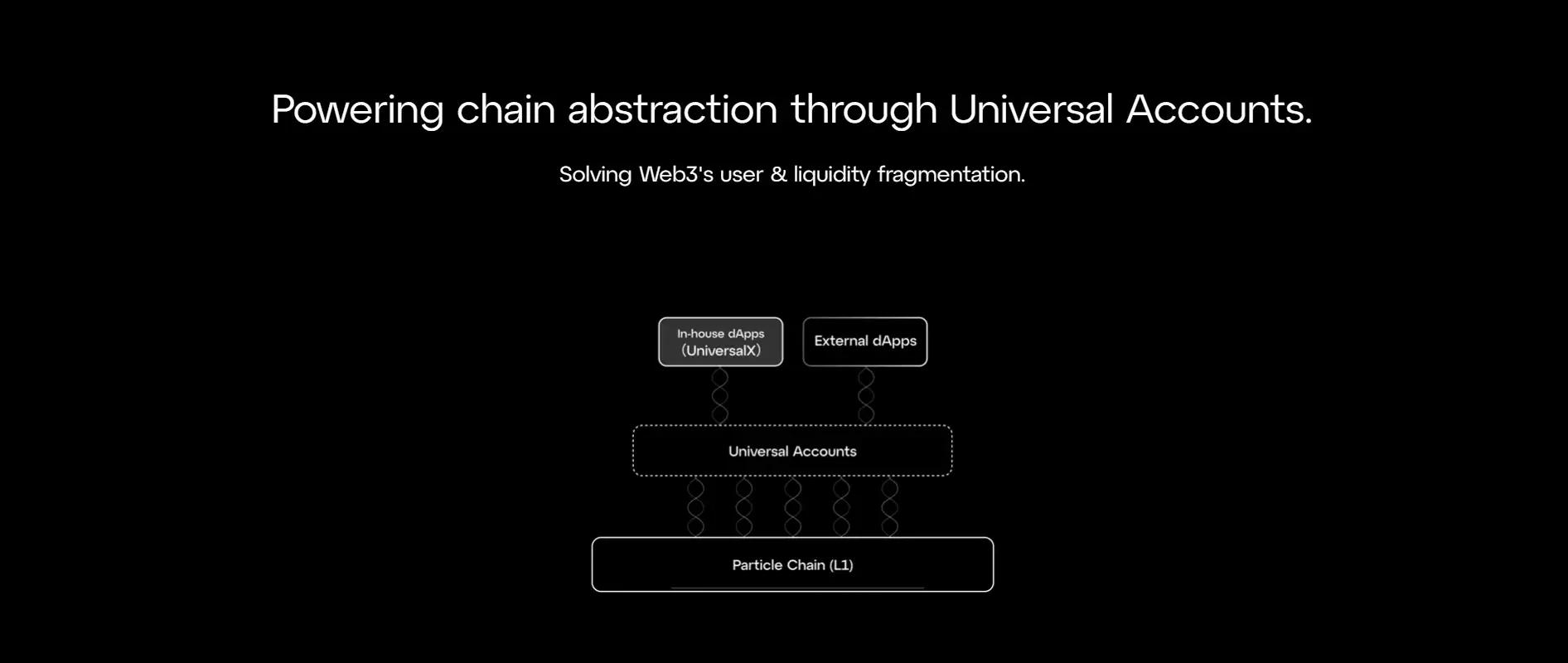About Particle Network
Particle Network is a modular blockchain infrastructure protocol designed to simplify and unify the Web3 experience through a concept called chain abstraction. With a focus on delivering seamless interoperability, Particle Network enables users and developers to access multiple blockchains using a single account, balance, and interface.
By leveraging its powerful architecture—including Universal Accounts, Universal Gas, and Universal Liquidity—Particle Network eliminates the need for bridges, gas juggling, or complex cross-chain operations. Its ecosystem is designed to abstract the fragmentation across the blockchain world, making crypto more accessible, efficient, and secure for developers, users, and institutions.
Particle Network introduces a new paradigm for blockchain interoperability through its innovative chain abstraction technology. At the heart of the project lies the idea of Universal Accounts, which allow users to interact with any blockchain using a single wallet address and consolidated balance. Instead of switching wallets, bridging tokens, or holding gas tokens for every chain, users can manage their entire Web3 presence from one unified experience via Particle Network.
The ecosystem further enhances this experience through its Universal Gas mechanism, which removes the need for users to own native gas tokens like ETH or MATIC to interact across chains. Additionally, Universal Liquidity brings composability to DeFi by enabling atomic cross-chain transactions, allowing users to access liquidity from multiple chains without needing to manually bridge assets.
Powering these features is ParticleChain, a purpose-built coordination layer for managing the Universal Accounts infrastructure. It integrates a Decentralized Messaging Network for high-speed cross-chain communications, a Decentralized Bundler for executing user operations across chains, and a Master Keystore Hub to orchestrate deployments securely. It also implements Dual Staking, combining both $PARTI and BTC staking pools to reach consensus and support decentralization at scale.
Particle Network’s competitors in this space include protocols like Axelar, and LayerZero, all of which aim to enhance cross-chain interoperability. However, Particle Network stands apart through its fully integrated stack, developer-first tools, and complete abstraction of user, gas, and liquidity layers.
Particle Network delivers several transformative features that simplify and strengthen the Web3 experience:
- Universal Accounts: Users operate across any chain with a single account and consolidated balance—no need for bridging or switching wallets.
- Universal Gas: Transactions across chains no longer require holding multiple gas tokens like ETH or MATIC.
- Universal Liquidity: Enables atomic cross-chain execution to unify liquidity and remove DeFi fragmentation.
- ParticleChain Coordination Layer: Coordinates the full infrastructure stack including messaging, bundling, and security.
- Dual Staking System: A decentralized consensus mechanism using both $PARTI token staking and BTC delegation for network validation.
- Modular Architecture: Developers can integrate components as needed, whether for wallets, dApps, or infrastructure layers.
- Self-Custodial & Secure: Retains full user ownership of keys and assets, enabling trustless onchain interactions.
Getting started with Particle Network is easy for users, developers, and dApp teams seeking to simplify cross-chain experiences:
- Explore the Platform: Visit the official website to get an overview of Universal Accounts and chain abstraction capabilities.
- Check Staking & Season 1: Participate in staking opportunities and earn rewards via the $PARTI token program.
- Read the Whitepaper: Dive into the technical vision and implementation strategy in the Particle Whitepaper.
- Integrate as a Developer: Submit your project to the ecosystem or use developer tools available on the Docs section.
- Join the Community: Connect on Discord or follow updates via Twitter.
- Use the Tech: Try Universal Accounts directly through dApps integrating with Particle Network, and transact across chains with no bridges.
- Stay Updated: Read the latest updates and research via the official blog.
Particle Network FAQ
Universal Accounts allow users to maintain one account and one balance across every supported blockchain, effectively eliminating the need to manage multiple wallets. This means a user can hold assets, perform transactions, and interact with dApps across chains using a unified identity. With Particle Network, users never have to switch wallets, handle bridges, or track fragmented balances again.
Particle Network introduces Universal Gas, a system that abstracts away the need for users to hold native gas tokens on every chain. Instead, transactions can be paid using any supported asset, simplifying the user experience and enabling seamless cross-chain operations without needing ETH, MATIC, or other gas tokens for every transaction.
Particle Network uses a Master Keystore Hub to securely coordinate Universal Account deployments and updates across chains. All operations are decentralized and self-custodial, meaning users retain full control of their keys and assets. This architecture reduces attack surfaces while maintaining high-speed interoperability.
The dual staking system in Particle Network uses two pools—one staking the native $PARTI token and the other BTC. Both validator groups must independently reach consensus for a transaction to be finalized. This ensures higher decentralization and fault tolerance while allowing BTC holders to participate in governance and security.
Particle Network is built to be modular and developer-friendly. dApp builders can integrate specific components such as Universal Accounts or Universal Gas into their existing systems using SDKs and APIs provided in the developer docs. This means minimal changes are required to unlock full cross-chain functionality.
You Might Also Like












